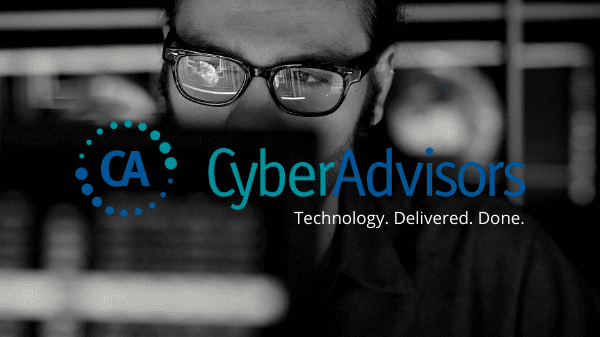Windows Server 2012: Navigating the End of Support and Upgrading Your System
So, what’s going on with Windows Server 2012?
The world of technology is ever-evolving, and with it, the tools and software we use must also evolve. Windows Server 2012, once a backbone of many business IT infrastructures, has reached the end of its support lifecycle. This milestone marks a significant shift for businesses relying on this server operating system. In this blog, we’ll explore the implications of the end of support for Windows Server 2012 and how businesses can navigate this transition, highlighting the role of Cyber Advisors in facilitating smooth migrations and upgrades.
Want to talk with someone about
into Data Migration?
Contact Us
Understanding the End of Support
Microsoft’s end of support for Windows Server 2012 means that this version will no longer receive security updates, technical support, or software updates. This cessation is a critical concern for businesses as it exposes them to significant security risks and potential non-compliance with various regulatory standards. Continuing to operate on an unsupported version can leave your infrastructure vulnerable to cyberattacks and data breaches.
What are the Risks to my Business?
The most immediate risk of continuing to use Windows Server 2012 post-support is the exposure to new vulnerabilities and cyber threats. Without ongoing updates and patches, systems become increasingly susceptible to security breaches. Additionally, compatibility issues may arise with new software and applications, hindering business operations and productivity.
Let us help assess your current infrastructure
The most immediate risk of continuing to use Windows Server 2012 post-support is the exposure to new vulnerabilities and cyber threats. Without ongoing updates and patches, systems become increasingly susceptible to security breaches. Additionally, compatibility issues may arise with new software and applications, hindering business operations and productivity. For no cost, Cyber Advisors will look at the infrastructure you have, and make recommendations to fix your cyber security holes.
Does your data storage
work for you?
Let's find out!
Migrating vs. Upgrading
When moving away from Windows Server 2012, businesses generally have two options: migrating to a newer server operating system or upgrading their current setup. Migration involves moving data and applications to a completely new environment, such as a newer version of Windows Server or a cloud-based platform. Upgrading, on the other hand, entails updating the existing server to a newer version of the operating system.
Depending on your use case, we can look into moving your data to the cloud, rather than getting new hardware. This can be extremely cost effective.
In other situations we can upgrade your system, or even replace hardware if needed.
Benefits of Upgrading
- Upgrading to a newer version of Windows Server brings numerous benefits. Newer versions offer improved security features, enhanced performance, and better compatibility with modern applications and software. Upgrading also ensures continued support from Microsoft, including regular security patches and technical support.
Move to the Cloud?
- The end of support for Windows Server 2012 presents an opportunity for businesses to explore cloud solutions. Migrating to the cloud offers flexibility, scalability, and often improved security. Cloud platforms like Microsoft Azure provide robust tools for managing applications and data, with the added benefit of pay-as-you-go pricing models.
-
- Microsoft Azure: Azure offers a wide range of cloud services, including virtual machines, app services, and AI capabilities. Its seamless integration with other Microsoft products makes it an ideal choice for businesses already using Microsoft software. Azure also provides robust security features, making it suitable for companies concerned with data protection and compliance.
- Amazon Web Services (AWS): AWS is a comprehensive and broadly adopted cloud platform. It offers services such as EC2 for virtual servers, S3 for storage, and RDS for database management. AWS is known for its flexibility, scalability, and a vast array of tools that can cater to various business needs, from small startups to large enterprises.
- Google Cloud Platform (GCP): GCP provides highly scalable and reliable cloud services with its offerings like Compute Engine, App Engine, and Google Kubernetes Engine. It's particularly strong in data analytics, machine learning, and open-source technologies, making it a good fit for businesses looking to leverage these capabilities.
At Cyber Advisors, we’re a Microsoft Partner. And especially for ecosystems utilizing Windows Server, the ideal setting for a cloud based solution is Azure. Azure offers you some major advantages:
- Seamless Integration with Microsoft Products: Azure is a Microsoft product, which means it offers unparalleled integration with other Microsoft services and software. For businesses already using Microsoft products like Windows Server, Office 365, or SharePoint, moving to Azure is a natural and smooth transition. This integration simplifies management and enhances user experience, especially in terms of compatibility and functionality.
- Hybrid Capabilities: Azure stands out for its robust support for hybrid cloud environments. It allows businesses to seamlessly integrate on-premises datacenters with the cloud, providing flexibility and the best of both worlds. Azure’s hybrid cloud solutions are ideal for businesses that are not ready to fully migrate to the cloud but want to start leveraging cloud benefits.
- Comprehensive Security and Compliance: Azure places a strong emphasis on security and compliance, offering a range of built-in security features and compliance certifications. With Azure, businesses can benefit from Microsoft's extensive investment in security technology and protocols. Additionally, Azure often meets a variety of industry-specific compliance standards, making it a suitable choice for businesses in regulated sectors.
- Scalability and Flexibility: Azure provides high scalability, allowing businesses to quickly scale up or down based on their needs. This scalability ensures that businesses only pay for what they use, making it a cost-effective solution. Azure’s flexibility extends to its vast array of services and solutions that cater to different business needs, from simple web apps to complex machine learning applications.
- Advanced Analytics and AI Capabilities: Azure offers advanced analytics services and AI capabilities, enabling businesses to gain insights from their data and build intelligent applications. Azure’s AI and machine learning services are among the most innovative in the industry, offering businesses the tools to stay ahead in a data-driven world.
- Strong Developer Support and Ecosystem: Azure provides a rich set of tools and a robust ecosystem for developers. It supports a range of programming languages and frameworks, making it a versatile platform for development. Azure’s continuous integration and continuous delivery (CI/CD) capabilities, along with its developer tools, make it an excellent platform for DevOps.
- Global Reach with Local Presence: Azure has a vast global network of data centers, ensuring high availability and reliability. This global presence allows businesses to deploy their services in regions close to their customers, reducing latency and improving user experience.
- Dedicated Support and Enterprise-Grade SLAs: Microsoft offers strong support options and enterprise-grade service level agreements (SLAs) for Azure. Businesses can rely on Azure’s operational excellence and Microsoft’s commitment to providing a reliable, high-performance cloud computing environment.
Ready to get
started?
Get in touch
What about staying on site?
In many situations it makes more sense to keep your data stored on premesis. We can also help you with a whole suite of server technologies. Cyber Advisors is Minnesota’s premier Dell partner. So we can easily set you up with any of the following:
- Dell PowerEdge R740: This server is designed for scalability and performance. It supports up to 3TB of memory and is equipped with Intel Xeon Scalable processors, making it ideal for applications like data warehousing, e-commerce, and virtual desktop infrastructure (VDI).
- Dell PowerEdge T440 Tower Server: A versatile tower server, the T440 is suitable for small to medium-sized businesses. It offers a balance of performance, storage, and I/O options. It's well-suited for workloads such as business applications, data consolidation, and virtualization.
- Dell PowerEdge R640: The R640 is a compact and scalable server, perfect for high-density data center environments. It supports up to 7.68TB of memory and is optimized for application performance and data center density, making it ideal for a wide range of workloads, including virtualization, high-performance computing (HPC), and cloud applications.
Planning your next moves
Planning is crucial for a successful migration or upgrade. This plan should include a thorough inventory of applications and data, a timeline for the transition, and a strategy for training staff on the new system. It’s important to consider potential downtime and plan accordingly to minimize the impact on business operations.
One of our specialties at Cyber Advisors is managing this type of project. Don’t lose critical business systems because you didn’t think of something. We can look at your current environment and understand what needs to be done to keep you running.
At this juncture, partnering with a seasoned IT service provider like Cyber Advisors becomes invaluable. As experts in IT infrastructure and data security, Cyber Advisors can guide you through the process of migrating or upgrading from Windows Server 2012. Our team has the expertise and experience to ensure that your transition is smooth and efficient.
Cyber Advisors: Your Data Migration Partners
Why Choose Cyber Advisors
Cyber Advisors stands out as the premier choice for businesses looking to migrate or upgrade their server systems for several reasons:
- Expertise in Latest Technologies: We stay abreast of the latest developments in server technology, ensuring that we can recommend and implement the most effective solutions for your business.
- Customized Solutions: We understand that each business has unique needs. Our approach is to provide tailored solutions that align with your specific business requirements.
- Minimized Downtime: We prioritize minimizing downtime during the migration or upgrade process, ensuring that your business operations are not unduly disrupted.
- Comprehensive Support: Our team provides end-to-end support, from initial planning to post-migration assistance. We ensure that your transition to a new server environment is seamless.
Wrap Up
The end of support for Windows Server 2012 is a pivotal moment for businesses using this platform. It presents both challenges and opportunities. By choosing to upgrade or migrate, businesses can enhance their IT infrastructure's security, efficiency, and scalability. Partnering with Cyber Advisors offers the expertise and support needed to keep your business running smoothly.
The choice between cloud-based solutions and physical servers depends on several factors, including your specific business needs, budget, existing infrastructure, and long-term IT strategy. Cloud solutions offer flexibility and scalability, often with lower upfront costs, while physical servers provide complete control over your hardware.
For businesses looking to modernize their IT infrastructure while ensuring security, performance, and reliability, Cyber Advisors can assist in evaluating these options and recommending the best fit for businesses looking to modernize their IT infrastructure while ensuring security, performance, and reliability. Their expertise in cloud solutions and physical server deployments ensures a smooth transition from outdated systems to modern IT infrastructure.





